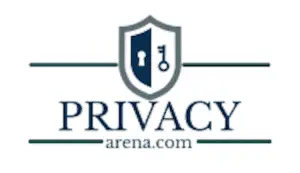You’ve finally decided to start your own small business out of your home. You have a plan in place for the legal structure of your new home business, and now you’re ready to get started on registering your business. You soon learn that to register a small business with your state, open a business bank account, and set up the appropriate tax structure, you need to provide a business address.
When it comes to starting a business, one of the decisions that people often struggle with is whether to use their home address as their business address. This can be a difficult decision, especially if you are not familiar with the pros and cons of using your home address. While it might seem like a convenient option, there are several reasons why you should avoid using your home address for your business.
Five important reasons why you should not use your home address for your business are related to privacy concerns, maintaining separation between personal and business finances, complying with local laws, avoiding crime, and establishing credibility with your clients.
In this article, we will discuss these five reasons in more detail, and explain the disadvantages of using home address for business.
1. Using Your Home Address for a Business Can Put Your Privacy at Risk

By connecting a business to a residential address, your personal information could be made available to the public. When you use your home address it may be listed in public records when you register your business with your state. In addition, if you decide to create a Google business profile for your business, your home address will be listed on your profile.
What that means is that anyone who wants to find out where your business is located can easily have access to your home address. They will be able to look up the information easily and you could end up with unwanted visitors or solicitors coming by your house.
Furthermore, in the course of conducting your business, there are many times when you will be required to provide your business address. This can include applications for loans, tax documents, vendor agreements, or even contracts with customers. The address of your business will likely also be included on your business letterhead, business cards, your website, and on any form of advertisement, including at the bottom of every email you send to your mailing list.
In 2020, even Amazon sent out an email to its amazon FBA sellers to notify them they would be displaying sellers’ business names and address on their Amazon seller profile pages and to update their contact information if they wanted to keep it private.
Your home is a private domain and you may not want to reveal its location to everyone who does business with you. By using your home address as your business address, you are essentially giving away personal information that can be used to track you down. It’s not uncommon for businesses to receive unexpected visits from clients, creditors, vendors, and even unhappy customers, and you don’t want that to happen at your home.
If you would prefer to keep your business and home life separate, you may want to consider using a different address for your business.
2. Maintaining Separation Between Personal and Business Identity
When running your own business, it’s important to maintain a clear separation between your personal and business identity. This allows business owners to keep business liabilities separate from their personal assets.
While using your home address for your business will not necessarily jeopardize this corporate veil in of itself, it can create confusion, and this separation could become blurred making it more difficult to keep your business finances separate from your personal finances.
The key to maintaining a separate business identity is to ensure that all business dealings are conducted under your business name. This can include having written contracts and agreements between the business and its clients, corresponding with clients and vendors on business letterhead or by business email rather than personal email, conducting financial transactions related to the business through a separate business bank account, paying for business expenses using a business credit card, and using an appropriate business address.
Business owners, directors, and shareholders should take every step to make it clear that the business is a separate legal entity from its owners.
By using your home address as the location of your business, it becomes more difficult to draw a clear line between your personal and business identity.
3. Compliance with Local Laws
When registering your business, it’s important to check with your state and local government to ensure that you comply with all relevant laws and ordinances. There may be specific regulations related to businesses that are located or can be operated at a residential address.
For example, some cities may have zoning regulations that prohibit certain types of businesses from being run out of a home or may require specific authorization from the city. Or, there may be regulations about signage or parking that need to be followed if you are using your home as your business address.
Furthermore, regulations set by Home Owner Associations (HOAs) or in rental agreements may prohibit business activities at a certain residential address. If your home is part of an HOA or if you’re renting your home, you should check with your HOA or review the terms of your rental agreement before using your home address for business purposes.
It’s important to do your research and make sure that you are following all the applicable laws and regulations. Ignorance of the law is not an excuse and it’s always better to be safe than sorry.
4. You May Be More Susceptible to Crime
Another concern that business owners should take into consideration when deciding whether to use their home address for their business is the increased susceptibility to crime at your home. According to Paladin Security, 95% of businesses experience some sort of theft, and businesses are 4 times more likely to be burglarized than a home.
By using your home address for your business, you are bringing the risk to your home and making your household a target for criminals.
Thieves may see homes used as businesses as an easy mark since they assume there will be less security in place than at a traditional office building. The risk of your home business being subject to a break-in or burglary can be further increased if you carry large amounts of valuable inventory or cash, if your business has expensive equipment such as computers, 3D printers, or other electronic devices, or if you advertise your home address as your business address on your website.
By using your home address for your business, you’re making it easier for criminals to find your residence.
You should take steps to secure the premises and make sure that any inventory, equipment, and cash are locked up and adequately protected. Install security cameras and motion lights around your property to deter criminals from targeting your home business. Additionally, be mindful of who has access to your home address or consider using a virtual business address.
Get your virtual mailing address at Traveling Mailbox
and use it for your business or personal use.
5. It May Be Difficult to Attract Customers or Clients
Finally, using a home address for a business may make it more difficult to attract customers or clients. A business address presents a professional image that can help establish trust with your customers and give them the confidence that their transactions are secure.
On the other hand, using a home address may affect how seriously potential customers take your business. When customers or clients see that a business is operating out of a home address, it can give them the impression that the business isn’t established or professional. They may not be comfortable providing personal information such as credit card information or contact information to a business based out of someone’s home.
It is important to consider how using your home address will impact the perception of your business. If you are serious about running a successful business, it may be worth investing in an alternate address or virtual office space to establish credibility and trust with potential customers or clients.
Final Thoughts
While using your home address may seem like an easy or convenient option for your business, you should weigh the risks and potential drawbacks before doing so.
You could be compromising your privacy, violating local laws, or putting yourself at risk for crime. You may also find it difficult to attract customers or clients with a home address as opposed to a professional business address.
The solution? Consider using a virtual business address. This will also help you to create a professional image for your business and give customers and clients confidence that your business is legitimate.



